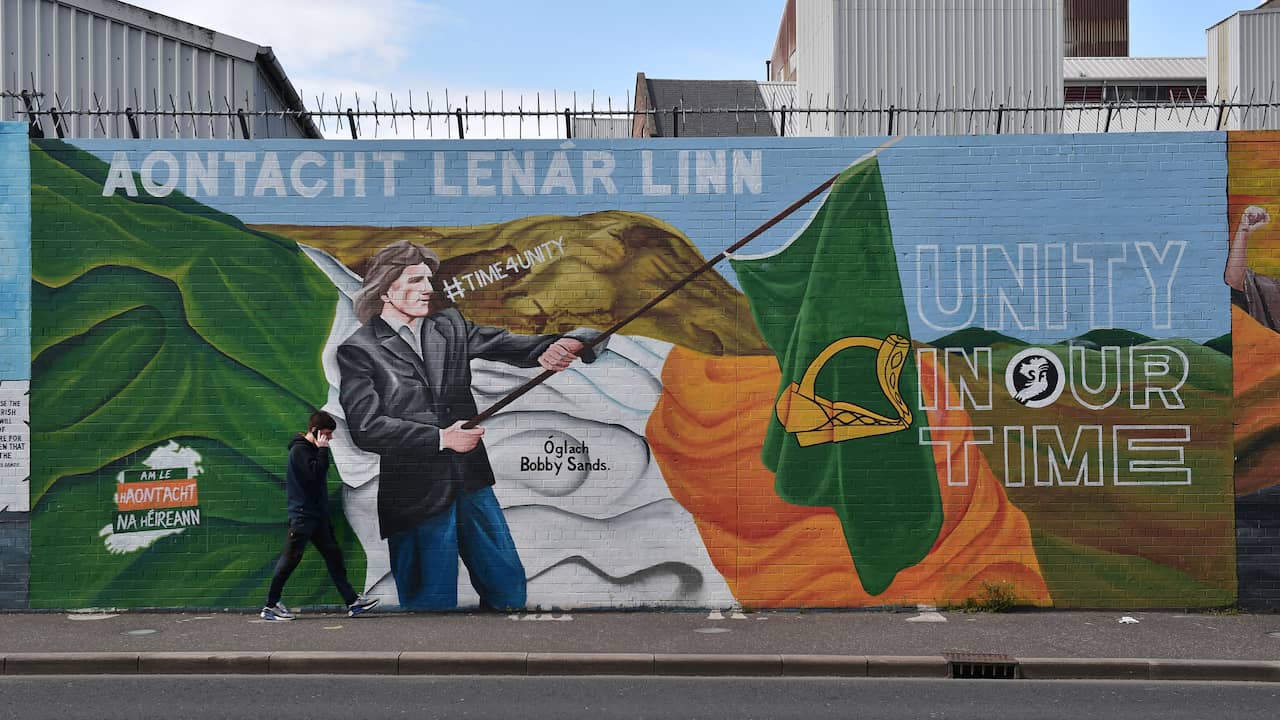About a year and a half after the Brexit deal between Britain and the European Union, Northern Ireland’s status remains a thorn in the side of negotiators. Since the election victory of the nationalist Sinn Féin party in Northern Ireland, both sides have threatened to destroy the deal. And then the next round of negotiations had yet to start.
What’s this about again?
Northern Ireland’s status has been a point of contention since the Brexit negotiations began. This is because Ireland has been part of the European Union since 1973, while Northern Ireland is part of the UK. It seems easy to solve it by dividing the territory, but in 1998 it was agreed in the so-called Good Friday Treaty that there would never be a hard border between Ireland and Northern Ireland.
And that’s where the shoe is stuck now. In the Brexit deal it was agreed that Northern Ireland would receive special status. The country is not a member of the EU, but is part of the European Customs Union. As a result, it must comply with European food standards and other regulations. This creates a lot of extra administration for UK supermarkets looking to supply their Northern Ireland branches, which has regularly led to empty shelves in Northern Ireland stores.
Wasn’t this a topic of discussion earlier?
Yes, regularly. But now that the Nationalist Party won the election in Northern Ireland last week, it’s resurfaced. They are arguing for the reunification of Ireland and Northern Ireland, if necessary as EU members. The second largest party, on the other hand, wants Northern Ireland to remain British and refuses to enter government as long as the special status remains. That makes things even more complicated.
In October, the EU proposed the abolition of customs controls on, among other things, medicine and some foods, reducing the total number of controls by half and reducing the number of controls on food by 80 percent.
But British Foreign Secretary Liz Truss is not satisfied with that. According to a statement he released Tuesday, his plans would still see “everyday products” disappear from the shelves and imports of some meat would require “fifty areas of administration”.
How are things now?
British Prime Minister Boris Johnson said earlier this week that Northern Ireland’s protocol was “untenable” under the current circumstances. Truss reiterated on Thursday that the country “will have no choice but to take action if the EU is inflexible”. That could mean anything, but there is talk in the corridors that the UK will announce next week that they will be abandoning parts of the protocol.
The European Commission took progress on Thursday saying the EU would never accept such a decision. “It undermines trust and jeopardizes the ultimate goal,” said European Commission vice president Maros Sefcovic. Sefcovic has previously shown that he is not afraid to scrap the entire Brexit deal, leaving the UK empty-handed.
What does this mean for negotiations?
In the coming weeks, negotiators on behalf of the EU and the UK will meet again for another round of negotiations. It was clear that this conversation would also be on the cutting edge.
It remains to be seen who gets right in the end, but there’s a good chance that this isn’t the final round yet. The Northern Ireland problem will continue to drag on for a long time. Whether a solution acceptable to both parties will be found remains to be seen.

“Typical tv ninja. Pop culture lover. Web expert. Alcohol fan. Wannabe analyst. General bacon aficionado.”







